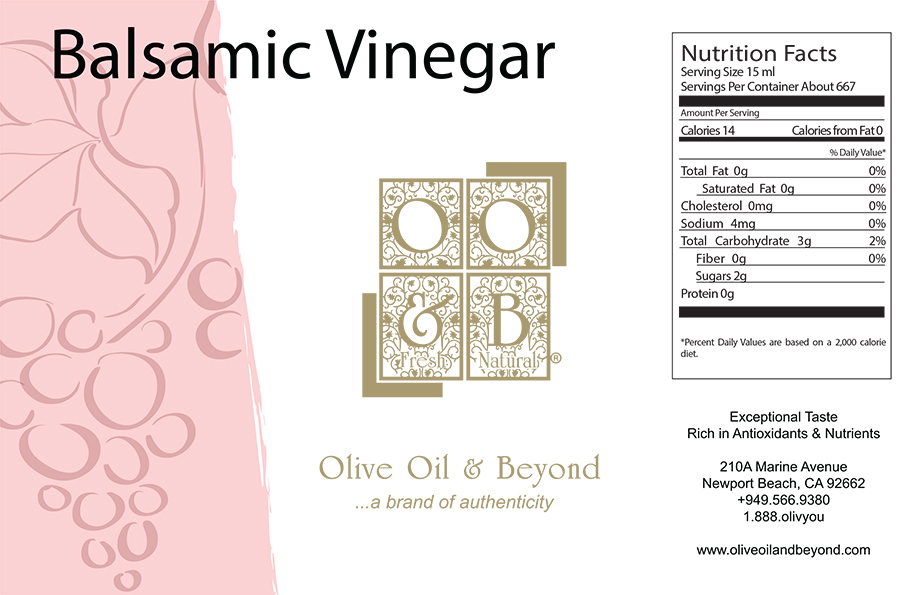Balsamic Vinegar Nutritional Information
Balsamic vinegar retains most of the nutrients of the grapes from which it is made. Rich in minerals, balsamic vinegar contains healthy levels of calcium, iron, magnesium, phosphorus, potassium and manganese necessary to support a healthy daily value of good nutrients.
Does Balsamic Vinegar Have Antioxidant Properties?
Balsamic vinegar is loaded with antioxidants. Free radicals form in our bodies every day as a by-product of producing energy. Free radicals damage cell membranes and manifest themselves in terms of premature aging, hardening of arterial walls and cancer. Antioxidants from balsamic vinegar destroy these free radicals and prevent cells from being destroyed.
Does Balsamic Vinegar Fight Cancer?
Balsamic vinegar is formed from grapes that are known to contain a bioflavonoid called quercetin, which has antioxidant properties. Along with vitamin C, this antioxidant strengthens the immune system to fight cancer and other infectious diseases and inflammations. Balsamic vinegar also contains polyphenols which are anticancer agents.
Will Consuming Balsamic Vinegar Lower My Heart Attack Risk?
Balsamic vinegar is low in saturated fat and is believed to reduce cholesterol. Since it is low in sodium, it enhances heart health and reduces high blood pressure. Lowering blood pressure and cholesterol by consuming balsamic vinegar can have significant effects on reducing the risk of a heart attack.
Can Balsamic Vinegar Help Control Diabetes?
Research reveals that consumption of at least 5 teaspoons of balsamic vinegar a day enhances insulin sensitivity. The greater the insulin sensitivity, the better the diabetes control.
Is Balsamic Vinegar a Natural Pain Reliever?
In ancient times, folk healers used this vinegar to relieve people of their body pain. Moreover, they also used balsamic vinegar to treat wounds and infections. The anti-bacterial and anti-viral properties in the vinegar healed wounds.
Does Balsamic Vinegar Help With Digestion?
The polyphenols in balsamic vinegar stimulate the activity of the pepsin enzyme in the body. Pepsin is a digestive enzyme, which helps break proteins into smaller units (amino acids). These polyphenols also assist the intestine in absorbing amino acids quickly. Efficient amino acid absorption enables the body to utilize it for cell building, repair and other body maintenance work. Thus, balsamic vinegar aids the digestion process.
Harness the nutritional power of balsamic vinegar! Explore Olive Oil & Beyond's quality
dark aged balsamic vinegars and white balsamic vinegars in a wide variety of delicious flavors.
NUTRITION FACTS

|

